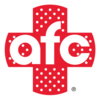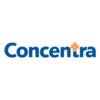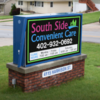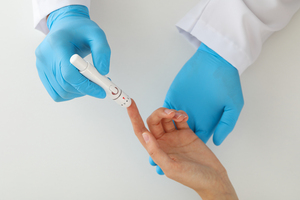Book urgent care & walk-in clinics near me in Omaha, NE
Own a clinic? Add your location.
Help patients book appointments with you on Solv. It's free!
2 instant-book locations

AFC Urgent Care, Omaha
AFC Urgent Care
Today
View more
NextCare Urgent Care, Papillion
NextCare Urgent Care
Today
View moreCrossroads Urgent Care
Crossroads Urgent Care
ThinkQuick Walk-in Clinic
ThinkQuick Walk-in Clinic

Concentra Urgent Care, South Omaha
Concentra Urgent Care
Methodist Physicians Urgent Care
Methodist Physicians Urgent Care
OneWorld Community Health Center
OneWorld Community Health Center

Concentra Urgent Care, Omaha West
Concentra Urgent Care

South Side Convenient Care
South Side Convenient Care
Rockbrook Urgent Care
Rockbrook Urgent Care
Rockbrook Urgent Care
Rockbrook Urgent Care
Western Historic Trails Center
Western Historic Trails Center
Midwest Urgent Care
Midwest Urgent Care
CHI Health Urgent Care
CHI Health Urgent Care
Urgent Care of Papillion
Urgent Care of Papillion
Methodist Physicians Urgent Cr
Methodist Physicians Urgent Cr
Visiting Nurses Association (West Side of Building)
Visiting Nurses Association (West Side of Building)
CHI Health Priority Care, La Vista
CHI Health Priority Care
Own a clinic? Add your location.
Help patients book appointments with you on Solv. It's free!
Discover Omaha Healthcare with Solv
Solv simplifies your search for healthcare in Omaha by seamlessly connecting you with urgent care and walk-in clinic options. With Solv, you can easily locate nearby clinics, access their ratings and reviews, view their hours of operation, and directly book same-day appointments with trusted providers. Our platform offers convenient features such as saving your appointment history for instant re-bookings and tracking your health insurance usage and deductible. Whether you're seeking care for sudden illnesses or minor injuries affecting you, your family, or your children, Solv streamlines the process by allowing you to filter by insurance acceptance, pediatric services, and current availability.
What to Expect with Your Visit
When you seek urgent care in Omaha, anticipate an efficient process designed to address your health concerns. For the best experience, it’s important to properly prepare for your visit and understand the likely expectations once you enter the clinic.
Preparing for Your Visit
A successful urgent care visit starts with good preparation. Here's how you can get ready:
- Where possible, book a visit online with Solv to save time waiting in the clinic
- Bring your ID, insurance card, and an accepted method of payment
- List your current medications, allergies, and any chronic conditions you may have
- Prepare a brief description of your symptoms and concerns, including their onset
- Think of any questions you might have for the healthcare provider
During Your Visit
You'll receive immediate attention from skilled healthcare professionals at the urgent care center focused on promptly diagnosing and treating your condition. Expect:
- A brief wait, depending on the clinic's volume and whether or not you booked ahead with Solv
- Check-in by providing your ID, insurance, reason for your visit, and completing initial registration paperwork
- A consultation with a healthcare provider to discuss your symptoms and medical history
- Possible diagnostic tests (e.g., X-rays or lab tests), if needed
Treatment may include prescriptions, wound care, or other immediate interventions.
Following your visit, ensure you understand home care instructions or medication usage. You might also receive referrals for specialist care or requests for follow-up visits to monitor your condition. Communication with your healthcare provider is key, so don't hesitate to reach out with any post-visit questions or concerns.
Urgent Care FAQs
What is urgent care?
Urgent care is a healthcare service focused on providing immediate, non-life-threatening medical attention. Urgent care centers treat conditions such as sprains, cuts, burns, and common illnesses and offer a range of services, including diagnostic and preventive care like immunizations and physicals. With an estimated 15,000 clinics in the U.S., urgent care centers operate beyond traditional primary care office hours, offering a convenient and lower cost alternative to emergency rooms for urgent but minor health issues.
What is a walk-in clinic?
A walk-in clinic is a type of healthcare facility that provides medical care to patients without the need for an appointment. These clinics cover a range of services such as urgent care, occupational medicine, and primary care with walk-in availability. They cater to non-emergent health issues, offering a convenient option for accessible medical attention. Walk-in clinics vary from free services provided by government, charity, or foundation-operated facilities to private clinics with affordable rates, serving as a practical alternative for minor illnesses and injuries outside of traditional doctor's offices and emergency rooms.
Do urgent care centers in Omaha take appointments?
Historically, urgent care centers were strictly an on-demand, walk-in healthcare service. More recently, as consumer behaviors and expectations have evolved, many urgent care clinics have begun offering book ahead visits, allowing consumers to select a same-day or next-day time that works best for their schedule. Use Solv to find a Omaha urgent care center that offers advanced bookings (or appointments) and book online.
Are Omaha urgent care centers open after hours?
Yes. Most primary care doctor offices are open during routine work hours, Monday thru Friday, 9:00 am to 5:00 pm. Conversely, most of the urgent care centers in Omaha are available after hours, on weekends, and many holidays. Typical urgent care hours are 8:00 am to 8:00 pm daily, although location-specific hours may vary.
How much will an urgent care visit in Omaha cost?
The cost of a visit to an urgent care in Omaha varies, with cash prices for the base visit generally ranging from $100 to $175. Additional treatments, such as lab tests, X-rays, or immunizations, can increase costs, typically between $50-150 each. If you're using insurance, expect a co-pay between $20 and $50, depending on your plan and whether the clinic is in-network. Prices differ based on location, so it's best to check directly with the urgent care center and your insurance provider for accurate cost estimates.
Related Searches
Flu Test in Omaha, NE
Blood Test in Omaha, NE
TB Test in Omaha, NE
A1C Test in Omaha, NE
Thyroid Test in Omaha, NE
Pulmonary Function Test in Omaha, NE
RSV Test in Omaha, NE
DOT Exam in Omaha, NE
COVID-19 Testing in Omaha, NE
H Pylori Test in Omaha, NE
Ear Wax Removal in Omaha, NE
COVID-19 Pill in Omaha, NE
Lab Tests in Omaha, NE
Urinalysis in Omaha, NE
Diabetes Test in Omaha, NE
STD Testing in Omaha, NE
Vitamin D Test in Omaha, NE
Allergy Testing in Omaha, NE
Drug Test in Omaha, NE
Diagnostic Test in Omaha, NE
CMP Test in Omaha, NE
Pediatric Urgent Care in Omaha, NE
Strep Test in Omaha, NE
Cholesterol Test in Omaha, NE
Pregnancy Test in Omaha, NE
DNA Test in Omaha, NE
Hepatitis test in Omaha, NE
Basic Metabolic Panel in Omaha, NE
Mono Test in Omaha, NE
Glucose Test in Omaha, NE
Sports Physicals in Omaha, NE
Dermatologists in Omaha, NE
Aetna Urgent Care
Blue Cross Blue Shield Urgent Care
Cigna Urgent Care
COVID-19
Flu
United Health Urgent Care
» All services in Omaha, NEFind urgent care
Nearby cities
Popular Brands in Omaha
Everyday Healthcare, Simplified
Expert advice to help you live your best life





![Accident Prone: Common Holiday Accidents [INFOGRAPHIC]](https://ucl-cdn-prod.thirdparty.solvhealth.com/dir/media/W1siZiIsIjIwMTMvMTAvMjYvMTBfNTJfMTRfMjQ1X2hvbGlkYXlfYWNjaWRlbnRzLnBuZyJdLFsicCIsInRodW1iIiwiMzAweCJdXQ?sha=ace44d1b024a1586)

